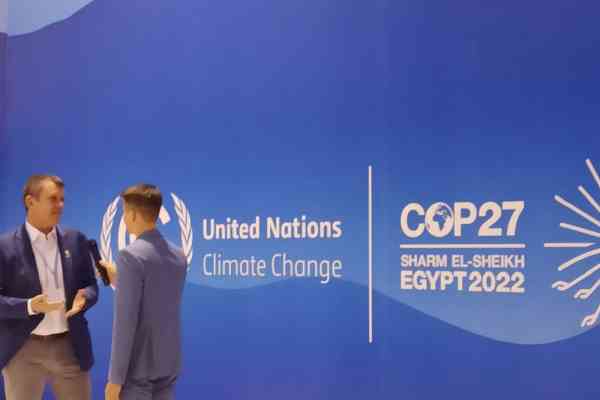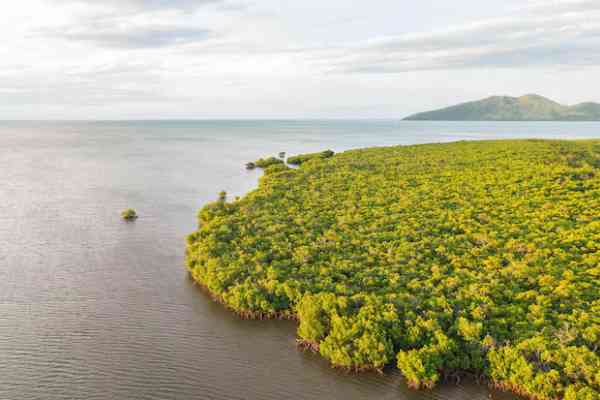Tuvalu, a leader in global climate action, continues demonstrating a solid commitment to the Paris Agreement. At COP 27, the country officially launched its updated Nationally Determined Contributions (NDCs) 2022. Focusing on mitigation, this NDCs update is a natural next step to build on the work already underway and to promote a zero-carbon development pathway by 2050.
-
What are Nationally Determined Contributions (NDCs)?
NDCs are 'Nationally Determined Contributions' and represent each country's commitment to reducing greenhouse gas emissions and adapting to climate change. They were agreed to by governments during the Climate Change Conference of the Parties (COP) in Paris in 2015, a commitment known as 'The Paris Agreement'.
There needs to be more than these initial commitments to decarbonize and transition to lower carbon and renewable energy to keep global temperature rise below 2.0 degrees. Every five years, countries should review and enhance their NDCs and submit more ambitious actions to reduce greenhouse gas emissions.
-
Tuvalu, one of the most vulnerable countries to the impacts of climate change
Being the fourth smallest nation in the world, Tuvalu is one of the most vulnerable countries in the world to the impacts of climate change. In 2015 Cyclone Pam displaced 45% of the population. In the following years, the continually intensifying cyclone events and sea level rise will directly impact Tuvalu.
“The prosperity of Tuvalu’s population depends upon effective climate change management and variability. With the islands of Tuvalu being only a few metres above sea level, a slight increase in sea level will have severe consequences on human health, food and water security, housing, infrastructure, land and marine biodiversity. On both international and national scales, we should take coercive measures rapidly to preserve our people and culture.” explains Pepetua Latasi, Director for Climate Change Department, Ministry of Finance, Tuvalu.
-
Enhancing a zero-carbon development pathway by 2050
To tackle climate change challenges, Tuvalu issued a first NDCs in 2016. Five years later, the country updated its NDCs, focusing on mitigation objectives.
Among the news goals settled, Tuvalu committed to:
- Reduce greenhouse gas emissions from the electricity (power) sector by 100%, i.e., almost zero emissions by 2030;
- Increase energy efficiency in Funafuti by 30%;
- Reduce total GHG emissions from the entire energy sector to 60% below 2010 levels by 2030;
- Develop a Zero carbon development pathway by 2050.
These ambitious goals can only be reached through an accessible access to climate finance and the support of international partners. “International support is crucial to enable Tuvalu to implement further actions outlined in its policies and plans, including at the sector level. The goal to pursue a zero-carbon development pathway by 2050 is dependent on availability of finance and technology.” says Pepetua Latasi.
-
Deploying adaptation programmes to tackle climate change issues
To tackle climate change challenges, Tuvalu issued its first NDC in 2016. Five years later, the country updated its NDCs, focusing on mitigation objectives.
Tuvalu is implementing adaptation measures to enhance community livelihood and promote sustainable development by reducing adverse effects of climate change, variability and extreme events.
Tuvalu’s adaptation actions are comprehensively articulated in the Environmental and Social Management Plan (ESMP) 2021 as well as in its National Climate Change Policy 2021-2030. As an example, the ESMP consist in reducing the vulnerability of three islands of Tuvalu to coastal inundation and erosion.
It includes the following actions:
- minimising the pollution of land, air and water pollution;
- protecting native flora, fauna and essential ecosystems;
- meeting the requirements of UNDP Standard 6 Indigenous Peoples and:
- encouraging good management practices through continuous improvement of environmental practices.
Tuvalu also plans to develop and implement its National Adaptation Plan (NAP) which will take an overall look at all the adaptation needs of the country.
Useful links:
- Know more about Tuvalu NDCs: https://pacificndc.org/pacific-ndcs/tuvalu
- Know more about COP 27: https://www.spc.int/enhancingclimateaction-COP27


